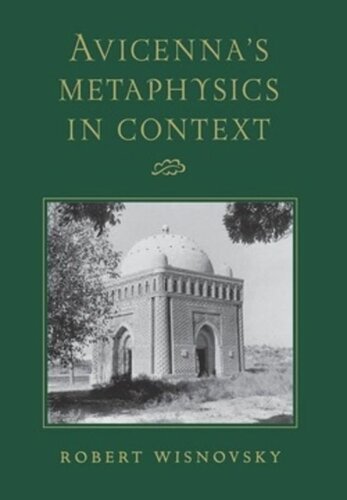

Most ebook files are in PDF format, so you can easily read them using various software such as Foxit Reader or directly on the Google Chrome browser.
Some ebook files are released by publishers in other formats such as .awz, .mobi, .epub, .fb2, etc. You may need to install specific software to read these formats on mobile/PC, such as Calibre.
Please read the tutorial at this link: https://ebookbell.com/faq
We offer FREE conversion to the popular formats you request; however, this may take some time. Therefore, right after payment, please email us, and we will try to provide the service as quickly as possible.
For some exceptional file formats or broken links (if any), please refrain from opening any disputes. Instead, email us first, and we will try to assist within a maximum of 6 hours.
EbookBell Team

4.1
70 reviewsThe eleventh-century philosopher and physician Abu Ali ibn Sina (d. A.D. 1037) was known in the West by his Latinized name Avicenna. An analysis of the sources and evolution of Avicenna's metaphysics, this book focuses on the answers he and his predecessors gave to two fundamental pairs of questions: what is the soul and how does it cause the body; and what is God and how does He cause the world? To respond to these challenges, Avicenna invented new concepts and distinctions and reinterpreted old ones. The author concludes that Avicenna's innovations are a turning point in the history of metaphysics. Avicenna's metaphysics is the culmination of a period of synthesis during which philosophers fused together a Neoplatonic project (reconciling Plato with Aristotle) with a Peripatetic project (reconciling Aristotle with himself). Avicenna also stands at the beginning of a period during which philosophers sought to integrate the Arabic version of the earlier synthesis with Islamic doctrinal theology (kalam). Avicenna's metaphysics significantly influenced European scholastic thought, but it had an even more profound impact on Islamic intellectual history—the philosophical problems and opportunities associated with the Avicennian synthesis continued to be debated up to the end of the nineteenth century.